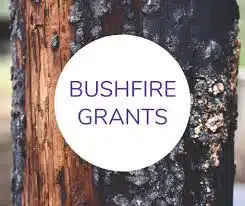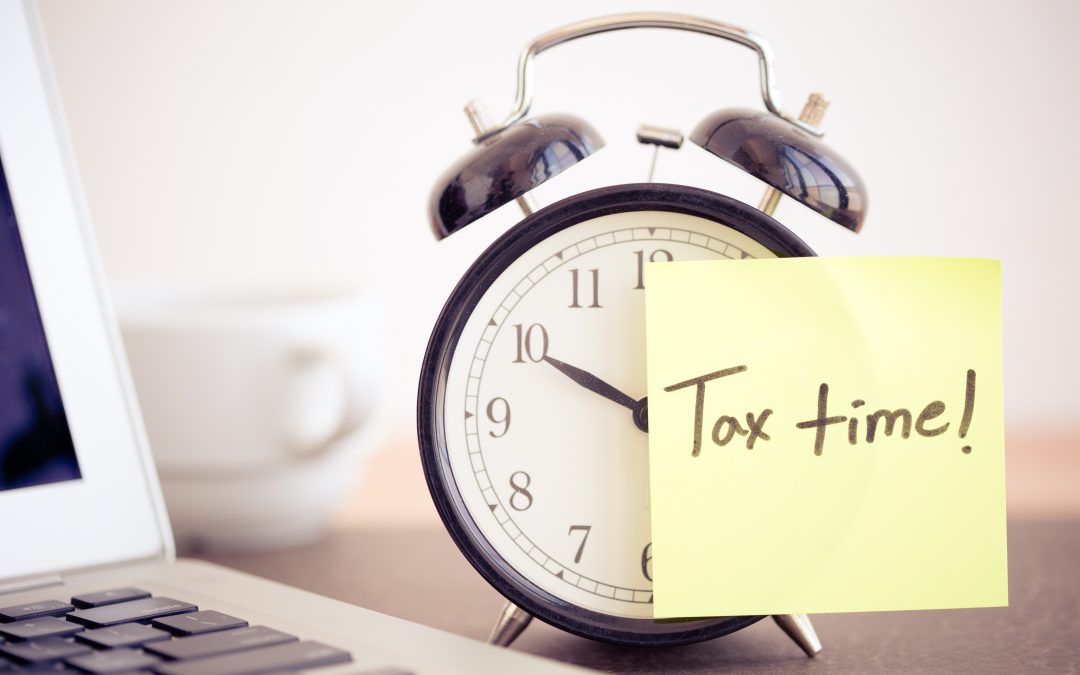Checklist for small businesses impacted by the bushfires
Bushfires hit the east coast of Australia in late 2019 and early 2020 with unprecedented force. While reporting focused on the number of homes lost, hundreds of businesses and their owners were also affected.
From total destruction to a loss of customers, the financial impact of the event will be felt for many months and for some small businesses it could take years to rebuild their business.
If you are a small business which has been affected, here are some ideas and useful links to help you through these difficult times:
1. Make sure you’re safe
After a bushfire or similar disaster, don’t return to your business until it is safe to do so. When you do go back, be aware that structures may not be sound. Avoid climbing on or going inside buildings which may have been damaged until you have clearance from a professional to do so.
2. Spread the word
Tell your staff, clients, partners, suppliers, family and friends what has happened and how you are. Let them know what you need and what is not helpful for the time being.
Social media is a helpful tool to update people at once. Ask your contacts not to call you but to keep an eye on the Facebook page for more information. This will save you from becoming overwhelmed by the phone ringing. If need be, ask a staff member or family member to take calls on your behalf.
You also need to continue marketing your business. Campaigns like #spendwiththem encourage people to buy from vendors who have been impacted by bushfires. You can email spendwiththem@turiapitt.com to register.
Also check out the #GoWithEmptyEskys campaign to raise awareness that your business needs support.
3. Contact your insurer
Once you have an idea of the damage, speak to your insurer or your insurance broker. They will be able to share the finer details of your policy and let you know what can be replaced.
You will need to share details about what has been lost. Open a notepad on your phone and jot things down as they come to mind. Hopefully you have records stored electronically, including receipts, which will make it easier to prove to your insurer what needs replacing.
If possible, get your insurance broker to work with you throughout the claims process. It can be an emotional time and having a less directly impacted third party to represent you will ease the stress.
4. Talk to your accountant
Your accountant will have some good advice. For example, replacing equipment worth less than $30,000 can be a 100 per cent tax write off. Your small business accountant can also help you determine which repairs are tax-deductible and how to manage things like staff payments during an ‘in limbo’ period for your business.
The ATO is offering some special terms for businesses impacted by the bushfires. Your accountant can liaise with them about delaying lodgements and payments.
5. Apply for funding, loans and grants
A good small business accountant can support you while you apply for funding, loans or grants to help you get back on your feet after a bushfire.
The Guardian reported on January 14th that the Australian government has announced a $100m package of grants of up to $75,000 for primary producers affected by bushfires. It is expected other types of businesses will also be granted access to funds, with more announcements to come.
Here are some allowances and special loan offers which are already available:
Disaster Recovery Allowance
The Department of Human Services is providing support for people who have lost income as a direct result of the bushfires in New South Wales, Eastern Queensland, South Australia and Victoria through the Disaster Recovery Allowance.
Disaster Recovery Allowance is a short term payment to help you if a declared disaster directly affects your income. You can get it for a maximum of 13 weeks. It’s payable from the date you lose income as a direct result of the bushfires.
The maximum payment rate is the equivalent of Newstart or Youth Allowance, based on your circumstances. Your rate of payment will be affected by your income prior to and following the disaster.
To find out more, visit: https://www.humanservices.gov.au/individuals/help-emergency/bushfires
NSW Rural Assistance Authority Disaster Recovery Grants
Disaster recovery grants of up to $15,000 are now available to primary producers, small businesses and not-for-profit organisations in Local Government Areas (LGAs) affected by the NSW bushfires that have occurred from 31 August 2019.
To find out if you are eligible, view the LGAs affected and the Guidelines on the NSW Rural Assistance Authority website.
https://www.raa.nsw.gov.au/disaster-assistance/
Primary Producer Disaster Relief Loans
Primary producers directly affected by a declared natural disaster who are in urgent and genuine need of assistance may be eligible for low-interest loans of up to $130,000.
This low-interest rate loan can help a farm business to:
- continue to operate your farm businesses for the next twelve months or until the next income is received
- replace and repair damage caused to the property and associated improvements not covered by insurance.
Find out more: https://www.raa.nsw.gov.au/__data/assets/pdf_file/0004/274720/Natural-Disaster-Loan-Primary-Producers-Guidelines.pdf
Small Business Disaster Relief Loans
Small businesses who have been directly affected by a declared natural disaster including floods, fires or storm damage, may be eligible for low-interest loans of up to $130,000.
This low-interest rate loan can help a small business:
- return to its normal level of trading or until the next major income is received within 12 months from the date of disaster
- replace and repair damage caused to your small business and associated improvements not covered by insurance.
Find out more: https://www.raa.nsw.gov.au/__data/assets/pdf_file/0005/274721/RINT19-55-Natural-Disaster-Loan-Small-Business-Guidelines.pdf
Support from your bank
Australia’s big four banks are offering donations and support to communities and affected customers.
For example, if you are an NAB customer, you can access a cash grant of up to $2000 if you lost your home or suffered significant damage from the bushfires.
Affected businesses with existing loans can request loan restructuring from Westpac Bank without incurring the usual bank establishment fees. Affected business customers with merchant facilities are eligible to receive assistance including monthly terminal access fee waivers for up to three months.
Contact your bank to find out if you are eligible for a grant or special consideration of your financial circumstances.
6. Plan your next steps and be mindful of your health
It is not advised to make big decisions when you’re in the early days of a life-changing event but once things have settled you will find yourself with a lot of questions.
Your accountant or a business coach can help you navigate these waters and make fact-based decisions which will put your feet back on solid ground sooner.
If you are finding this period very difficult to recover from, call the NSW Mental Health Line on 1800 011 511 to be connected to your local mental health service or call Lifeline on 131114. Take a look at the Government’s $76 million mental health package to find out about subsidised therapy and other mental health support options.
Our thoughts are with those impacted by the devastating bushfires. To help, the Imagine Accounting team are donating $2210 to Rural Aid (Ruralaid.org.au). This is an organisation that Peter Caunt – Senior Director came across in his travels.
Rural Aid is one of the largest rural charities in Australia. A nationwide charity, it was founded by Charles and Tracy Alder in 2015. Its focus is twofold – to provide support to farmers and rural communities in times of natural disaster as well as supporting the sustainability of the agricultural sector.




